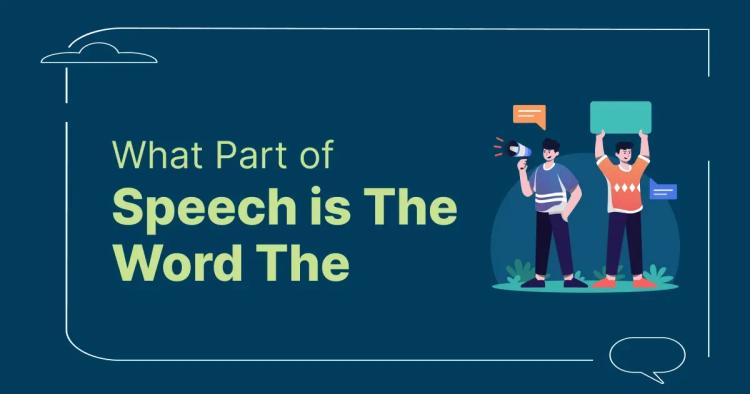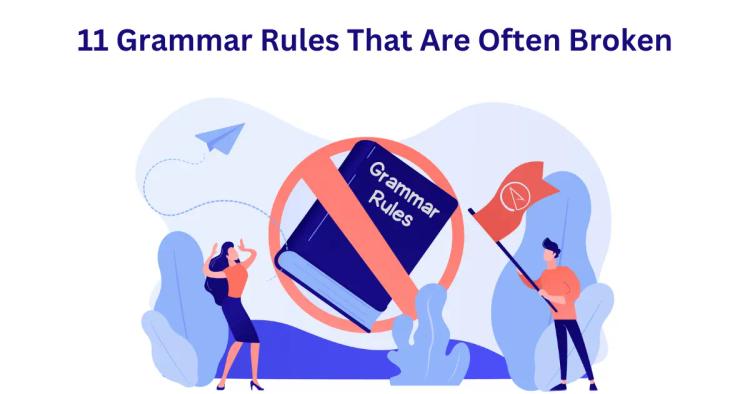Language is like a colorful garden filled with words and expressions that paint our thoughts and feelings. In this vibrant garden, there's a unique and sometimes hilarious flower called "malapropism." Imagine it as a surprised giggle in the middle of a serious conversation or a playful dance of words that tickles your brain.
Have you ever said something like "I'm on the road to success, and there's no traffic in the extra mile," when you meant "no turning back in the extra mile"? That's a malapropism – a friendly twist in the language game we all play.
So, buckle up as we take a stroll through the garden of words, explore the roots of malapropisms, and learn why they're more like friendly butterflies than troublesome weeds in our linguistic landscape.
What is Malapropism?
Now, let's dive into the heart of the matter – understanding what malapropism means. Picture this: you're talking about someone being brave, and instead of saying "He has a lion's heart," you accidentally say "He has a lion's tart." That's a malapropism right there!
In simple terms, a malapropism happens when we use a word that sounds a bit like the right one but means something completely different. It's like your brain playing a game of telephone with your mouth, and the message gets a little mixed up along the way.
So, whether it's a friend mixing up "barking up the wrong tree" with "barking up the wrong bush" or a character in a movie saying, "It's not rocket surgery" instead of "It's not rocket science," malapropisms add a sprinkle of laughter to our daily language adventures.
Now that we've uncovered this charming language quirk, let's unravel its story and find out why it's such a delightful guest in our linguistic garden.
Origin and Etymology
Imagine stepping into the theatrical world of the late 18th century, where words danced on the stage like lively characters. It was in this vibrant setting that a character named Mrs. Malaprop emerged in Richard Brinsley Sheridan's play, "The Rivals."
Mrs Malaprop was a woman with a unique way of mixing up her words, unintentionally creating humor. People found her linguistic blunders so amusing that they coined a term for it, giving birth to the word "malapropism."
Now, the word "malapropism" itself is a bit of a word mash-up. Take a little French influence with "mal à propos," which means "inappropriate," and blend it with the English love for playing with words, and you get "malapropism."
It's like a linguistic recipe where the ingredients are words from different languages, and the result is a term that describes the playful misuse of language we know and love today.
How to Recognize Malapropism
Recognizing a malapropism is like spotting a friend in a crowded room – you just need to know what to look for. Imagine someone saying, "I'm on the pineapple of virtue." Now, we all know they probably meant "pinnacle," but that slip-up is a malapropism.
Here's a trick: listen for words that sound similar but have different meanings. If you hear someone say, "He's a real gentleman and a scholar; he's very illiterate," you'll catch the mix-up between "illiterate" and "literate." That's a classic malapropism moment.
It's not about being a language expert; it's about paying attention to those little surprises in everyday speech. So, next time you're chatting, and someone says something that makes you raise an eyebrow, you might have just stumbled upon a charming malapropism!
Malapropism vs. Eggcorn
Okay, so we talked about malapropisms, right? Now, let's clear up a little confusion by looking at another word mix-up buddy: the eggcorn. These two are like cousins in the world of language slip-ups, but they have their quirks.
Malapropism:
Imagine this – someone wants to say, "I'm excited about the proposal," but oops, they say, "I'm exasperated about the proposal." That's a malapropism! It's when you use a word that sounds kind of similar but means something different. The mix-up can be pretty funny.
Eggcorn:
Now, let's meet the eggcorn. This one is a bit subtler. It's when you use a word or phrase that sounds like the right one and kind of makes sense in the situation, even though it's not the correct word. For example, saying "old-timers' disease" instead of "Alzheimer's disease." It sounds similar, right? But the actual term is "Alzheimer's." That's eggcorn.
In simple terms, malapropism is like accidentally picking the wrong word that sounds alike, while eggcorn is when you choose a word or phrase that makes sense but isn't quite right.
Examples of Malapropisms
Alright, let's jump into the fun stuff – examples of malapropisms! We'll explore both classic literary malapropisms and everyday speech slip-ups.
Classic Literary Malapropisms
-
In Shakespeare's play, someone says "illiterate" when they mean "literate." It's like calling someone unable to read when you mean the opposite!
-
Mark Twain, another literary genius, gave us this gem: "exasperated" instead of "exaggerated" in Tom Sawyer. Picture someone getting all frustrated instead of telling a big story. Funny, right?
Everyday Speech Malapropisms
-
Imagine saying, "He's the pineapple of politeness." Now, replace "pineapple" with "pillar," and you'll have a proper compliment!
-
If someone suggests, "Let's not beat around the bush; let's get to the nitty-gritty," they're using some vivid language to say, "Let's get straight to the point." Mixing up phrases like these adds a humorous twist to our everyday conversations.
In a nutshell, malapropisms are those unexpected, sometimes silly word mix-ups we all make. They happen in literature, and they sneak into our chats, making language a bit more amusing!
Impact and Humor of Malapropisms
You know when someone says something, and it's not quite right, but it's so funny that you can't help but laugh? That's where malapropisms come in. These little language mix-ups can have a big impact on how we communicate.
Communicative Consequences
When someone accidentally says the wrong word, it can lead to a bit of confusion. People might scratch their heads and wonder, "Did they mean that?" However, these moments also bring a lot of joy. They make conversations lighter and more enjoyable.
Imagine you're at a party, and someone says, "I'm going to nip it in the butt!" Instead of the correct "nip it in the bud." It's a mix-up, but it turns a serious situation into a funny one.
Humorous Instances in Media
Think about your favorite comedy shows or movies. Often, characters use malapropisms to make us laugh. It adds a layer of humor to the story. Picture a character trying to sound smart, saying, "I'm the pineapple of politeness!" It's not what they meant, but it sure makes us giggle.
From cartoons to stand-up comedians, malapropisms find their way into our hearts and make language a source of joy.
Copychecker's Grammar Checker Tool
Now, let's chat about Copychecker – your friendly grammar checker tool that's like having a language superhero by your side.
Importance of Proofreading
Imagine you're sending a message to a friend, and you accidentally write, "I'll be there in a hop, skip, and jumble." Oops! You meant "jump." It happens to the best of us. This is where proofreading comes in. It's like giving your words a second look to make sure they're saying what you want them to.
Introducing Copychecker
Enter Copychecker, your virtual proofreading buddy. It looks through your writing to catch those sneaky mistakes. It's like having a friend who reads your work and says, "Hey, did you mean 'jump' instead of 'jumble'?" It's a helpful tool that keeps your writing in check.
How Copychecker Detects and Corrects Malapropisms
So, you're wondering, how does Copychecker do its magic. It's like a detective for words. It checks your writing against a big database of correct language use. When it spots a possible mistake, it raises its virtual hand and says, "Hey, take a look at this.
I think there might be a mix-up." It not only points out the errors but also suggests the right word, making your writing shine.
Benefits of Using Copychecker
Let's talk about the good stuff Copychecker brings to the table – making your writing clearer, saving you time, and preventing those cringe-worthy moments.
Enhanced Writing Clarity
Imagine you're writing an important email, and instead of saying, "We have a deal," you accidentally write, "We have a dill." Different thing! Copychecker catches these slip-ups, making sure your message is crystal clear. No more unintentional pickles in your writing!
Time-Saving Features
We're all busy, right? Copychecker is like a little time-saving superhero. Instead of spending ages checking every word, let Copychecker do the heavy lifting. It's quick and efficient, giving you more time to focus on what you want to say, not on hunting down mistakes.
Avoiding Embarrassing Mistakes
There's nothing worse than realizing you sent an important document with a glaring error. Copychecker helps you avoid those facepalm moments. It's your safety net, making sure you don't accidentally write, "Our company has a proud tradition of making good moral decisions," when you meant "moral" instead of "mortal."
Common Malapropisms Detected by Copychecker
Let's dive into some real-life examples where Copychecker proves its mettle in identifying and rectifying malapropisms.
Real-life Examples
Original: "She had a heart of goal."
- Copychecker Suggestion: "She had a heart of gold."
Original: "The recipe called for two cups of flower."
- Copychecker Suggestion: "The recipe called for two cups of flour."
Learning from Mistakes
Copychecker doesn't just correct errors; it provides valuable insights into language usage. As you use the tool, you'll start recognizing patterns and improving your writing skills over time.
FAQs
What is Malapropism?
A malapropism is when someone uses a word that sounds similar to the intended word but has a completely different meaning. It often results in a humorous or confusing twist in language.
What are Malapropism Examples?
Malapropism examples include phrases like "it's a doggy-dog world" instead of "dog-eat-dog world" or saying "I have a photographic memory" instead of "photogenic memory." These mix-ups highlight the unintentional humor in language.
How to Recognize Malapropism?
Recognizing malapropisms involves paying attention to words that sound alike but have distinct meanings. If a friend says something that seems a bit off, it might be a malapropism.
What’s the Difference Between a Malapropism and an Eggcorn?
While malapropisms involve using words that sound similar but have different meanings, eggcorns are substitutions that make sense in context, even if they're not the correct terms. Understanding this difference helps appreciate language quirks.
What is an example of a Malapropism for Kids?
For kids, a fun example of a malapropism could be saying "I'm as light as a lemon" instead of "I'm as light as a feather." It showcases how innocent and delightful these language mistakes can be.
Conclusion
In this journey through the world of malapropisms and the aid of Copychecker, we've explored the quirks and charms of language. Language is a dynamic and evolving entity; we all make mistakes, but with tools like Copychecker, we can refine our craft and communicate with clarity and confidence.
So, let's celebrate the beauty of words, learn from our linguistic adventures, and continue on the path to becoming articulate and expressive communicators. Happy writing!




